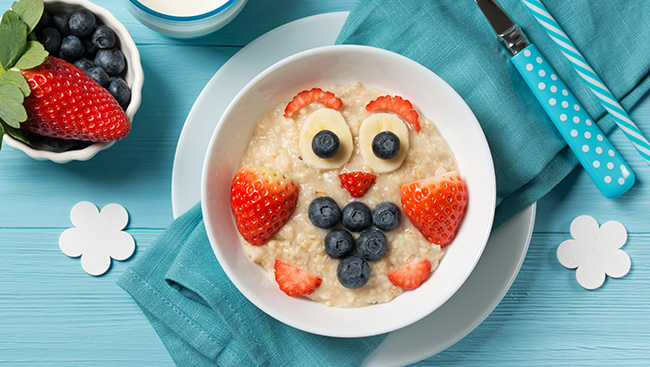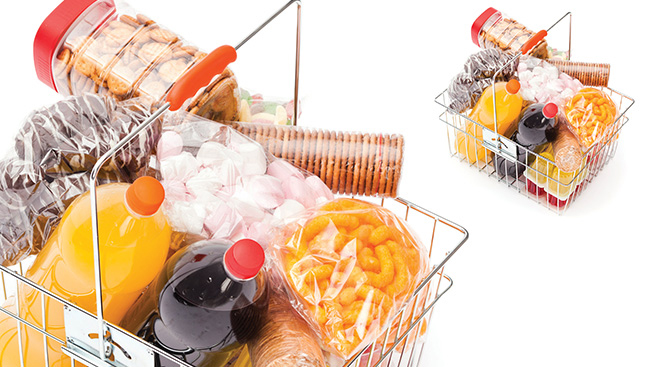Struggling To Give Your Child Vital Nutrition? Experts Suggest What You Need To Do!
A mother is like an alchemist in the kitchen, always on the lookout to build her child’s immunity, strength and bone health by the choices she makes every day. As a parent, she is a strong believer in the fact that sustainability begins at home and therefore everything she prepares and serves her child becomes a part of the child’s blood chemistry. Her choices either compliment or hamper her child’s cells, tissues and organ systems’ growth.
Tarika Ahuja, a holistic nutritionist, parenting coach and author of the accredited book Beautiful Children: The Parent’s Essential Guide for Raising Strong, Balanced, Healthy Children, and Neeti Sarin, founder of Tiffin’s Etc., a company catering nutritious food to school children since 1990, have put together some golden rules for mothers who wish to strengthen their child’s immune system.

Three things to INCLUDE in your child’s everyday diet plan:
1 Feed your child whole grains every day
Most children do not have the habit of eating breakfast in the morning, and many mothers don’t tend to realize it much as they replace the same with milk. Therefore, whole-grains become all the more vital in at least two meals every day.
Not many know, but whole-grains contain the goodness of energy-giving carbohydrates, which nourishes a child’s body and mind and helps him/her to deal with hectic mornings. These whole grains include whole brown rice, whole barley, whole millet (foxtail millet, banyard millet, black millet, finger millet) and whole amaranth. Cracked grains like wheat dalia, barley dalia, and steel cut oats are also very important. These contain essential vitamins, minerals and fiber that help digest the food better. The third meal can be a delicious pasta, bread or chapatti but from unadulterated flour instead of refined flours and sugars.
2 Consume beans and lentils every day
Who does not love the ever favourite rajma chawal? But did you know that these beans shaped like our kidneys actually help in the proper functioning of the kidneys? Lentils and beans stabilize blood sugar, support heart health, provide healthy protein and energy for the body and mind. Their consumption is also essential for one to two meals every day. To make the menu interesting and appetizing, you can serve hummus, dips or bean burgers, which are equally nutritious and also taste delicious.
3 Adding more of leafy vegetables and salads in the meal
It is often a task to feed children vegetables, let alone salads. But a consistent effort from the parents ensures wonders of lifetime benefits for the child and their immunity. One successful way of implementing this habit is by making food art. Children love colours, stories and adventures. They will relish salads more if the dressing is creamy and slightly sweet such as a lemony peanut butter dressing or creamy tahini dressing. Not only are these dressings delicious, but the very reason a child will enjoy eating a nutritious salad every day. Different vegetables offer healthy fiber, different nutrients and enough energy to fulfill varying needs of a growing kid. A good variety of salads support good digestion and ensures circulation.

Three things to EXCLUDE from your child’s daily diet:
1 Avoid white sugar
No compromise on this point at any cost. World over, research is suggesting that white sugar is a slow poison and contributes to inflammation, acidic blood quality, and many lifestyle diseases. Replace commercial white sugar (which is often bleached besides being refined) with jaggery, dates or organic unprocessed raw sugar (not brown sugar). White sugar is highly acidic and contributes to body mineral depletion.
2 Reduce the intake of dairy
Avoiding or reducing commercial dairy may be a tad bit difficult initially, but, if we follow a simple rule of making just a few changes every week, then no changes are essentially that difficult. Commercial modern cows are injected with hormones to produce more milk and antibiotics for better hygiene and health. These chemicals go into the milk of the cow which is further processed with chemicals and preservatives to make many kinds of commercially-packaged cheeses and other dairy products.
Commercial dairy is mucus-forming, filled with chemicals and preservatives that hinder the proper absorption of nutrients, clog the gut, and weaken the digestion for your child. This can be replaced with calcium-laden food like broccoli, beans, legumes, mustard greens, and other dark leafy greens and nuts.

3 Avoid chemical-laden foods
No matter how appetizing they seem, these packet foods such as chips, quick noodles, commercial pickles, processed cheese, are loaded with chemicals and preservatives that weakens the immune function and nervous system of your kid in the long run.
Applying the above key pointers require two things. Firstly, umpteen practical and smart shopping skills. The mere act of shopping for the right things makes a huge difference – certain healthy foods make their way into the kitchen and certain old junk items move out of the kitchen; your cooking is healthier already.
Secondly, improving your own cooking skills. Taking cooking classes and workshops with holistic nutritionists and practitioners goes a long way in understanding how to prepare the right food for your child. A common presumption is that a child won’t eat healthy food but he or she won’t eat bland food or foods prepared without interesting textures and colours either. The trick is to know how to combine certain ingredients that satiate their hunger and even leaves a taste for it behind.





